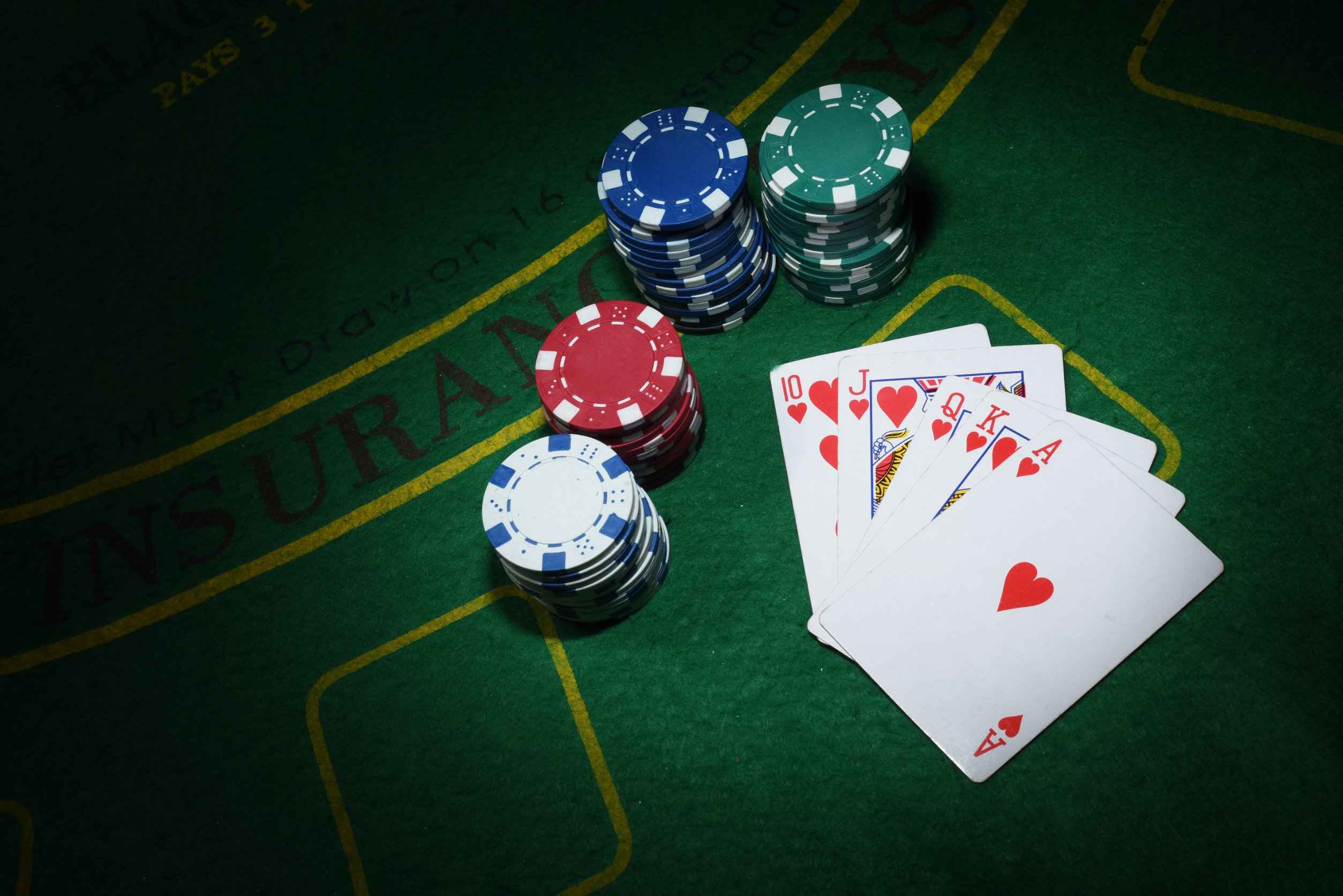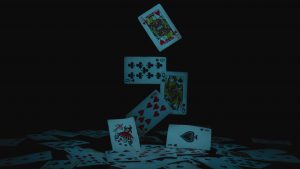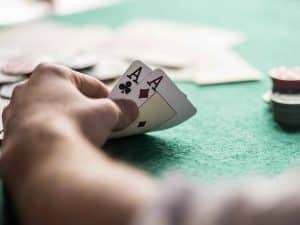A poker dealer is in charge of dealing players’ hole cards and community cards during a hand, as well as managing the pot and bets made during the various betting rounds. Whether this responsibility is passed down from player to player at a home game or assigned to a single person (such as poker dealers at cardrooms or casinos), the poker dealer’s job is critical in ensuring that gameplay moves quickly and smoothly from one hand to the next. if you are a beginner read on to learn how to deal poker!
Let’s take a more in-depth look at the poker dealer, including topics such as how to become a professional poker dealer, how to deal poker (including how to deal Texas Hold’em), and general tips to ensure smooth gameplay (like automated online poker tables).
How to Play Poker in 4 Simple Steps
While attending “dealer school” will provide you with all of the knowledge you need to deal poker and other table games, let’s go over how to deal poker step by step. If you follow this simple guide, you will be able to deal correctly and confidently at any home game.
While the following points apply to many other poker variations, let’s go over how to deal a hand as a Texas Hold’em dealer:
Step 1: Sort the Cards
Prior to each hand, the cards must be shuffled, as this randomizes the order and prevents players from knowing where any of the cards are. Many poker tables in casinos alternate decks each hand, with one deck used in play and the other going through an automated card shuffler built into the table.
If players can see the bottom card while you’re shuffling, they’ll be able to track the approximate location of one or more cards in the deck. Before a hand is dealt, at least four riffle shuffles and a cut must occur.
Step 2: Shuffle the Deck
A Texas Hold’em dealer will deal two hole cards to each player at the table, beginning with the player to the left of the poker dealer button. It is usually up to you how to deal poker cards (or to the standard practice of the casino in which you work). A European style of dealing involves sliding the top card onto the table and then pushing it towards a player, often with a spin. An American style of dealing involves pinching the card face-down and flicking it towards a player.
Step 3: Oversee the Pot
The poker dealer is responsible for managing where the action is during the betting rounds and ensuring that all players make proper bets and bet sizes. (For example, if someone says “$35,” the poker dealer must ensure that the player bets $35 in chips and that all subsequent callers match that amount with the correct denomination of chips.) The action begins pre-flop with the player to the left of the big blind. Post-flop, betting rounds begin with the first player still in hand seated to the left of the poker dealer button.
Step 4: Distributing the Pot
If a showdown occurs, the poker dealer must determine which hand is the best. When a hand is won, the poker dealer must award the chips to the winning player by pushing the pot in their direction. In the event of a tie, the pot is split and divided equally among the winners. In Texas Hold’em, if there are an odd number of chips in the split pot, the odd chip is awarded to the player closest to the left of the button.
The above 5-point dealing system covers the fundamentals of dealing a poker hand. While other unique situations (such as misdeeds and player discrepancies) may arise, simply immersing yourself in poker (and frequently playing or watching the game yourself) will help give you a good understanding of how to deal with poker for any situation that you may encounter.
Distinctions in Heads-Up Play
Heads-up play necessitates only a few changes to how betting rounds work compared to full-handed play.
Pre-Flop: The small blind is the player to the left of the poker dealer button in a full-handed game. However, in heads-up play, the person who has the button is also the small blind and will be the first player to act after the cards are dealt.
Post-Flop: On each post-flop betting round, the player in the big blind (i.e., the player to the left of the poker dealer button) will be the first to act; betting does not begin from the small blind, as it would at a full-handed table.
Notes for Dealing Poker at Home Games
Because there isn’t always someone dedicated to being the poker dealer at home games, players take turns being the poker dealer and dealing cards during each hand.
Who Is the Dealer in Poker? Each hand’s poker dealer is usually the person holding the “button.” (This is why the “button” is also known as the “dealer button.”) Everyone eventually gets a turn to be the dealer during each orbit as the button moves to the left after each hand.
Shuffling and Cutting: Multiple players are usually involved in dealing with preventing cheating. Typically, the player to the dealer’s right gathers all the cards from the previous hand and squares the deck. The cards are then shuffled at least four times by the current poker dealer. The deck is then passed to the player seated immediately to their left to be cut once. Finally, the deck is returned to the poker dealer, who deals the cards.
The “House Rules”: Just as some casino rules differ, it’s a good idea to establish some general “house rules” prior to starting a home game to avoid discrepancies. (For instance, are verbal actions legally binding? Is there a “line” that bets must cross, or is the term “forward motion” used? Is it considered dead if a player turns his hand face-up?) Because there is no “floor man” (as in a cardroom) who can ultimately clarify the rules and make an executive decision, it is critical to establish at least a few basic policies before playing in order to promote smooth gameplay with minimal conflict.
General Advice on Dealing Texas Hold’em Poker
How to Use Chips: There are a few things to keep in mind when it comes to handling chips as a poker dealer.
If a player places a bet without saying how much, and someone asks, “How much?” It is the dealer’s responsibility to count the chips and appropriately announce the bet that was placed.
At the end of each betting round, the dealer must collect all bets placed on the table and place them in the pot.
If a side pot is formed after another player goes all in, it is the dealer’s responsibility to correctly distribute the chips that have been bet into the main pot and the side pot.
If a dealer is asked, “How much is in the pot?” they are not permitted to respond. Instead, they may “spread the pot” so that all players can see the pile of chips in the pot.
The dealer pushes the chips in the direction of the winner at the end of a hand.
Making Public Announcements: It is not necessary to announce any folds or calls that occur, but the poker dealer should generally announce the amount of any bet or raise that is made. Following the conclusion of the pre-flop betting round, the poker dealer will usually announce how many players will see the flop.
Control Your place: It is the poker dealer’s responsibility to keep the players at their table in line and ensure that all actions are completed properly and promptly.
The following are some common examples to help illustrate this:
Suppose a player is acting inappropriately or not following proper gameplay etiquette (such as repeatedly splashing the pot when they bet or raise). In that case, the poker dealer should warn them and/or summon the floor man to resolve the issue.
If a player folds out of turn, the poker dealer should step in quickly to halt play so that (1) more players behind this player do not fold out of turn and (2) the action can flow properly from one player to the next.
If a player isn’t paying close attention to the action at the table and it’s their turn to act, the poker dealer should politely notify them.
Maintain Your Professionalism: Being a poker dealer can be challenging at times because the players are there for entertainment and to have a good time, while it is the dealer’s responsibility to keep them in line and to remain calm and collected. As a result, dealers must learn quickly how to deal with players who hold a grudge against them or blame them for their bad luck.
They must not take any attacks personally and must remain calm while carrying out their duties. If an issue becomes too prominent, they can discuss it with one of their supervisors either during or after their current session.
When in doubt, take the floor: If there is a disagreement about the action at hand, you can always summon the floor man to settle the matter and get the correct ruling on how the game should proceed. For example, if Player 1 announces a raise out of turn, and then seconds later, Player 2 (whose turn it is) raises, is Player 1 verbally obligated to raise again when it is their turn to act? This is a situation in which the floor man should weigh in and decide how the game should proceed.
Practice and More Practice: You get better at what you repeatedly do, just like everything else in life. As a result, the more you practice and repeat, the faster and more efficient you will become in dealing throughout the course of a hand! You’ll also quickly develop a “routine” for properly acting as a dealer and a knack for dealing with any problems that arise.
Understand How to Play a Variety of Games: In addition to Texas Hold’em, you should try to broaden your knowledge and learn how to deal with a variety of games in a casino. This includes other poker variants like Omaha, Stud, and Draw and games like Blackjack, Baccarat, 4-Card Poker, and more!
Tipping at Felts: Tipping is common in live poker cash games. A player’s tip to the poker dealer can typically range from $1 to $5 per hand but is usually in the $1 or $2 range. While poker dealers should not expect tips for every hand, they should be gratefully accepted with a genuine “Thank you” and a smile each and every time.
Depending on the casino or cardroom, some poker dealers personally keep all of the tips they receive at the felts (which can be a great incentive for doing a good job dealing throughout each hand). Other times, the casino collects all the tips and distributes them evenly among its dealers.




